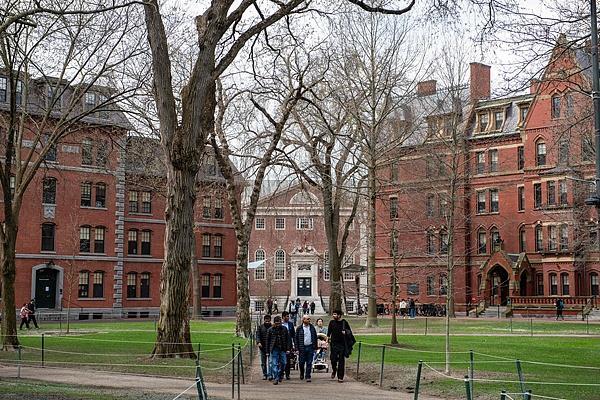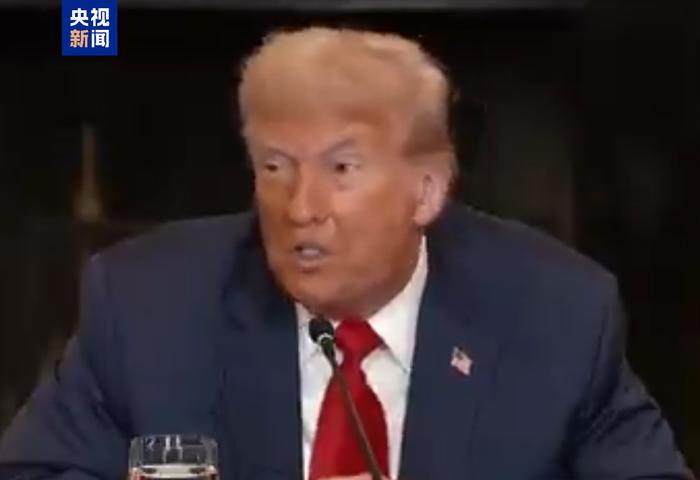


On the 9th local time, the Trump administration intensified its pressure on Harvard University. The Department of Homeland Security announced it would issue an administrative subpoena to demand information about international students from Harvard University. This move represents the latest action taken by the Trump administration against Harvard, escalating tensions between the two parties once again.
“We had no choice but to take a tough approach”
△Screenshot of a post by Noah, the Secretary of Homeland Security on social media X
Noah, the Secretary of Homeland Security, stated that due to Harvard’s “refusal to cooperate,” they had no choice but to take a tough approach. She accused Harvard and other universities of allowing “foreign students to abuse visa special treatment, promoting violence and terrorism within the campus.”
△The Department of Homeland Security announced it would issue an administrative subpoena to demand information about international students from Harvard University.
“Harvard is very bad, completely ‘anti-Semitic,'” said President Donald Trump during a question period at the White House.
△Trump said on the 9th that “Harvard is very bad” at the White House.
On the same day, the U.S. Department of Education and the Department of Health and Human Services formally notified New England Higher Education Commission, the accrediting body for Harvard University, that Harvard failed to protect Jewish and Israeli students on campus, violating federal anti-discrimination laws.
In response to the latest move by the Trump administration, Harvard University issued a statement on the 9th: “Harvard remains unwavering in its efforts to protect its community and its core principles from baseless retaliations by the federal government.”
In recent months, conflicts have been ongoing between the Trump administration and Harvard University. The Trump administration accused Harvard of condoning “anti-Semitism,” cutting off billions of dollars in research funding for Harvard. Harvard accused the government of attempting to undermine the school’s independence.
The impetus for this conflict was the Trump administration’s threat to Harvard and several other top universities with demands for “reform” based on freezing federal funds. However, Harvard chose to lead the charge in a “hard fight.”
On April 14th, Harvard University President Lawrence H. Summers issued a public letter refusing to comply with the Trump administration’s demands, leading the U.S. government to freeze approximately $2.2 billion in federal funding for the university.
On April 21st, Harvard University initiated related litigation.
On June 4th, Trump signed an announcement restricting international student visas at Harvard University under the pretext of safeguarding national security, suspending entry for foreign citizens studying or participating in exchange programs at Harvard.
On June 20th, Trump stated that negotiations with Harvard were ongoing and could soon reach a resolution.
On June 24th, a representative from Harvard University indicated that the university would not compromise.
On June 30th, the Trump administration issued a “violation notice” to Harvard University, accusing the school of improperly handling alleged discrimination against Jewish students on campus and threatening that if the university did not make necessary corrections, it would lose all federal funding support.
“International Students Without Visas Can Study at Toronto University”
On local time June 26th, Harvard University and the University of Toronto announced an emergency plan. If U.S. visa restrictions lead to some graduate students being unable to return to the United States, the plan will allow them to continue their studies in Canada. This marks the first international student emergency plan announced by Harvard University since the U.S. Department of Homeland Security revoked its admissions authority for international students last month.
Under this plan, to address potential visa issues, students who cannot return to the United States through the Kennedy School of Government at Harvard will have the option to continue their studies through the McKinsey Global Institute for Public Policy and Strategy at the University of Toronto. The program will integrate courses taught by faculty members from both institutions.
Currently, Harvard University has filed two lawsuits with the government, attempting to prevent its punitive actions.
First, there is the issue of federal funds being frozen due to the school’s refusal to agree to a series of demands. Second, there is the matter of the White House preventing international students from attending Harvard University on the grounds of national security.
An insider revealed that negotiations had stalled by the time the Trump administration announced its latest actions against Harvard University on the 9th, with both sides “far from reaching an agreement.”
According to data from Harvard University, as of the fall semester of 2023, international students account for over 27% of the university’s student body. Currently, Harvard has enrolled nearly 6,800 international students and scholars from more than 140 countries and regions, most of whom are pursuing graduate programs.